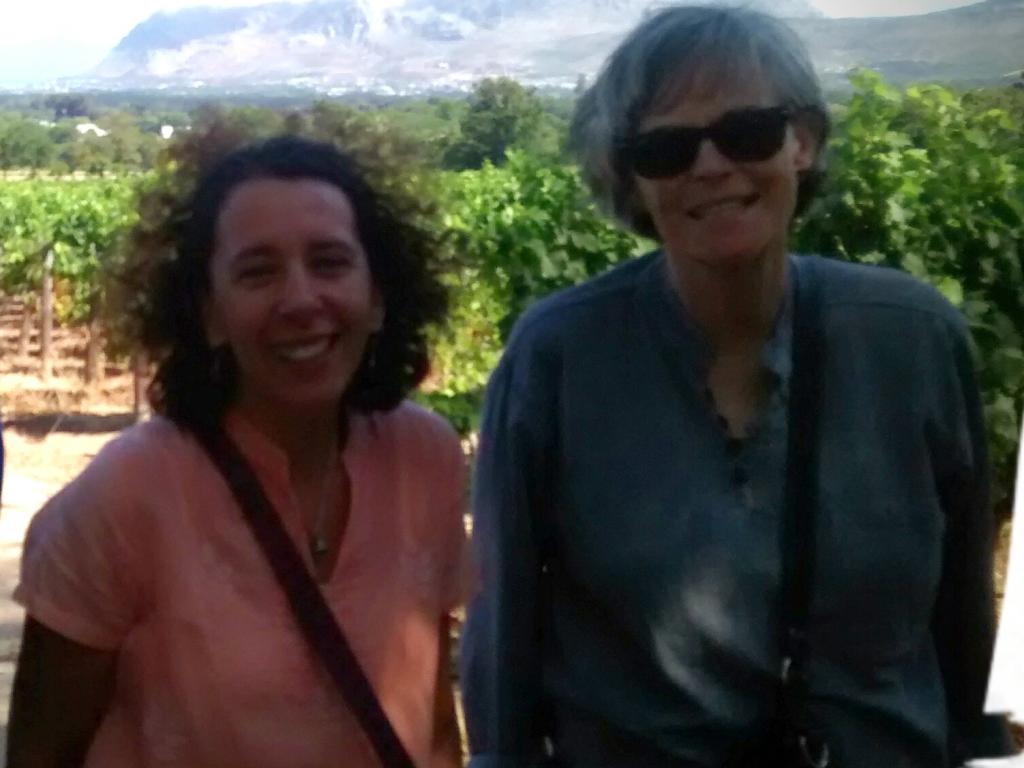‘Why do we put theory in the subject position?'

This was one of the central questions asked at a CHED presentation entitled ‘Theory as a verb – Working with dilemmas in educational development’. Offered jointly by Lucia Thesen from the Language Development Group, UCT and Lynn Coleman from Fundani, CPUT, the talk focused on the four moments that could bring out the process of turning theory into a verb, and its effects on writing research. But first, the presenters shared their dilemmas in the current higher education climate.
The dilemmas for Lucia Thesen became heightened during and post the RMF movement, with questions such as: What did it mean to teach in English? How would one rally against ideas of anglo-normativity while being deeply entrenched in it? What did the process of formalising thought entail? As one shifted modes, what were the affordances and losses of the modes? She recalled the words of Carolissen here, ‘Writing is thinking, interrupted by publication’.
Lynn Coleman experienced similar dilemmas in her context asking, ‘How do we rally against dominant literacy practices when writing a journal in AD?’ For her the naming convention in academia was equally interesting for while seeking to give legitimacy to a practice, the name also aligned the practice to dominant ones in the academy. She recalls the linguistic choices they had to make when they presented their ideas to a foreign audience at the Scholarship of Teaching and Learning in the South (SOTL) conference earlier. The process of re-contextualising the ideas made her question, ‘How do we write ourselves, our histories and our accents? How do we demarcate our identities? What did it mean to commit things to writing?’
For the presenters, it was these dilemmas that constituted the first moment to developing and using theory. The second moment was to think about how we are using theory, what our investments are, what theory does in practice, and whether it is keeping us apart from the lived practices. The third moment was to ask what our personal and collective histories of thinking and theorising were. Here, Lucia Thesen referred to Leibowitz’s own dilemmas with theory. The fourth moment involved paying close attention to how we write theory, how we speak with authority, what we are straddling, who or what is being converted.
These moments triggered profound thoughts about how research gets formalised in our various contexts. Lucia Thesen asked, ‘Why do we put theory in the subject position, and the students at the end of the line? What does it involve having to straighten the line, giving it a name, turning it into a noun?
The audience resonated deeply with these prompts that call into question the bedrock of research and what we accept as theory. During the discussion, Saalih Allie commented that, ‘Across disciplines, theorising involves suppression. It’s about taking complexity and simplifying it. Is there a fit between practice and theory? Or do we engage in justification after the fact?’ A tutor in the sociology department latched onto the idea of suppression, ‘We are not saying some things because of the limiting nature of the academy itself’. Lucia Thesen’s response captured the essence of the presentation, ‘We have to think of the academy in different ways that are not held hostage to these dominant ways of expression’.
Lucia Thesen and Lynn Coleman’s paper have been published in the SOTL journal. See link: https://sotl-south-journal.net/?journal=sotls&page=article&op=view&path%5B%5D=53&path%5B%5D=19
